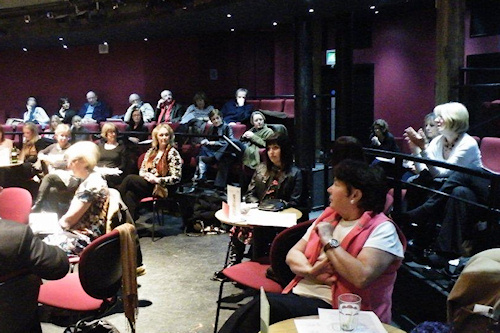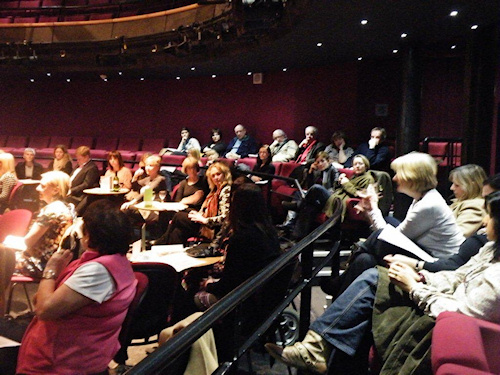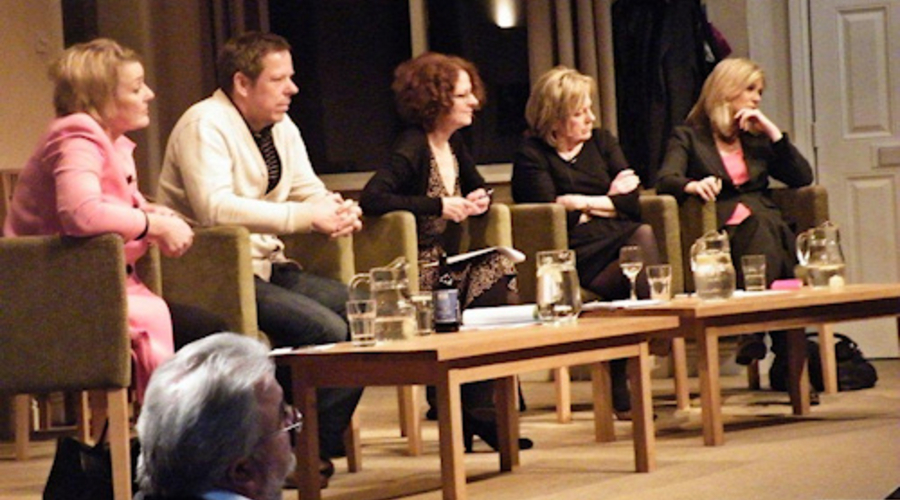Is TV a suitable job for a woman?
If recent statistics are to be believed, the TV industry is not a suitable employer for anyone who is remotely like a typical member of the human race.
Only a third of men employed have children; that falls to a fifth for women. That compares with the general population where two thirds of the population have dependent children.
The reasons for this problem – if it is a problem – were grappled with by an RTS audience and a panel with more experience than most in what it takes to overcome the barriers to join what appears to be an increasingly exclusive club.
Ruth Pitt, executive producer at Tiger Aspect, chaired a panel comprising Di Nelmes (“doyenne of factual and daytime TV” and currently MD of Liberty Bell); Fiona Armstrong (BBC News presenter); Dawn Thewlis (BBC Look North sports presenter); and Tom Harvey (Chief Executive of screen agency Northern Film & Media and “never let it be said, our token man”).
The audience at Newcastle’s Live Theatre heard that a recent Skillset survey had shown a 10 per cent decline in the TV workforce in the last three years, with 5000 women leaving the industry before or during middle age, compared with 750 men.
At the other end of the scale, TV is accused of dumping women when they reach a certain age. The recent tribunal triumph by Countryfile’s Miriam O’Reilly seemed to support the claims of Selina Scott and many others that broadcasters have for too long thought it acceptable to hire only wrinkle-free youthful presenters.

The anecdotal evidence from the panel and audience illustrated the difficulties women have traditionally faced. Dawn Thewlis was clear that combining motherhood and a TV career is a big deterrent: “I had great support but it was still a struggle”. Fiona Armstrong agreed: “Something has to give”. Di Nelmes drew parallels with caring for an elderly parent, which also tends to fall disproportionately on women.
There were a wealth of stories illustrating the tough attitude sometimes needed to cope with production office culture, but the panellists brushed that off as going with the job. “You can’t be oversensitive” was Dawn’s view.
Recent decades have seen improvements such as flexible working, and lighter equipment is also making technical careers open to more people. But the audience saw trends working in the opposite direction. Lower pay means women have less freedom to employ support; casualisation is harder to combine with the responsibilities of parenthood; and the big employers with more family-friendly conditions are gradually being replaced by a multiplicity of independents. Audience member producer Sheilagh Matheson said: ”There’s no financial incentive now for staying in the industry.” Annie Wood added: ”There are no longer large stable employers – it’s wishful thinking that there will be any special effort for special needs.”
Does it matter? Tom Harvey was clear that it’s not just women who are losing out - the whole industry is the weaker, an “archaic beast”, if it fails to reflect the interests of a large part of the audience. Ruth Pitt wondered how this trend can be reversed if the next generation of women are being driven out before their careers have hardly started: “Where will succession come from?”

But who is to blame – and who should be trying to reverse this trend? There was frustration amongst some of the audience at a lack of answers.
But the panellists were clear that it was worth the struggle. Fiona Armstrong may be a household name but she told the students in the audience that her initial efforts to join the industry were rebuffed. “I sent 70 letters and got only one reply – you’ve got to be really motivated”.
Di Nelmes summarised it: “TV’s a tough medium to work in. If you really want to do it, it’s fantastic. But if you see it as just glamorous, it’ll be a nightmare.”
Text & Pictures by OLWYN HOCKING

